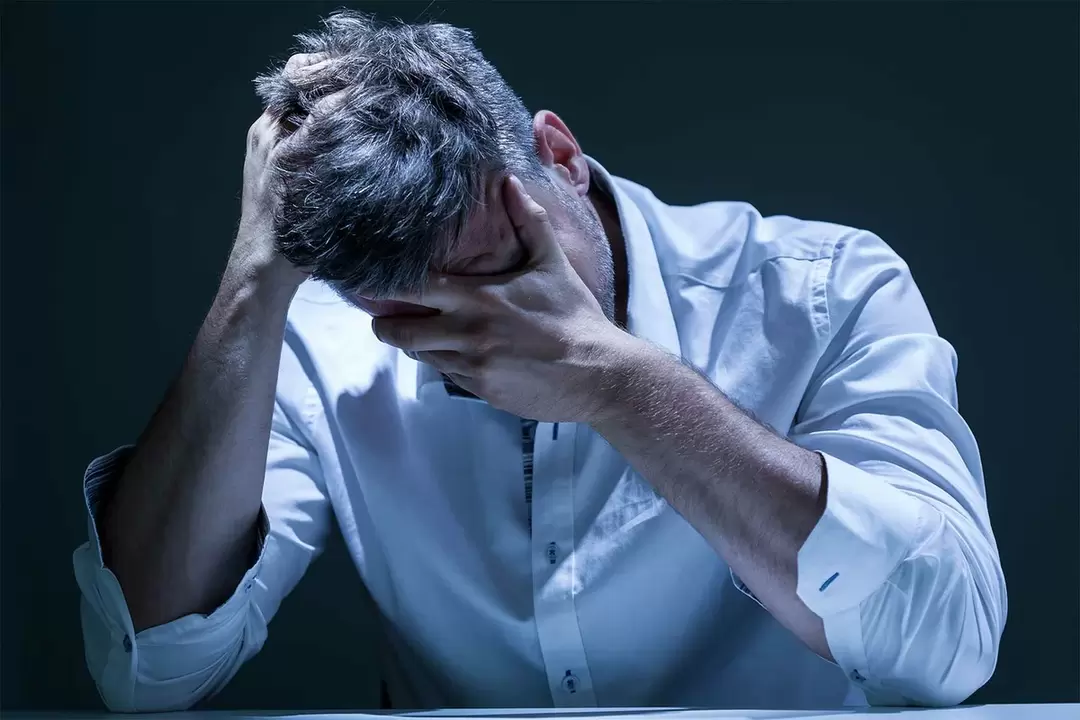
The term "prostatitis" refers to a chronic or acute inflammatory process of any etiology occurring in the prostate. Since the prostate is an exclusively male organ, prostatitis develops only in men. There are many types of prostatitis, but each type of prostatitis can be divided into acute and chronic.
Acute prostatitis occurs under the influence of many factors - the presence of bacteria, viruses, protozoa, under the influence of malnutrition, a sedentary lifestyle, bad habits and others. >
The prostate is an external secretory gland, that is, the secret it produces gets out to the external environment. In humans, the prostate is an unpaired organ whose activity depends on male sex hormones, especially androgen and steroid hormones.
The prostate is located behind the bladder and encloses the initial part of the urethra, into which its ducts open.
The prostate owes one of its functions precisely to its location – during an erection it blocks the outlet of the bladder. It is the prostate that is responsible for the feeling of orgasm, this happens due to the abundant supply of nerves to the gland, that is, innervation.
temperature
One of the first signs of acute prostatitis, regardless of the causes of its occurrence, is an increase in temperature. As with any other inflammatory process in the body, the temperature rises to subfebrile numbers - that is, about 37. 5-380OUT.
In addition, the more intense the immune response, i. e. the reaction of the body, the higher the temperature rises. That is, at the peak of the disease, the body temperature can rise up to forty degrees.
Of course, only an increase in temperature cannot indicate the occurrence of prostatitis.
Usually the first symptoms of prostatitis are difficulty in urinating with additional muscles - the muscles of the abdomen, violations of the mechanism of ejaculation, itching, burning and other unpleasant phenomena in the perineum or genitals.
Frequent trips to the toilet
This is also an increased urge to urinate (with a small amount of urine), a feeling of "residual urine" after emptying the bladder, an unpleasant orgasm and, as a result, a decrease in libido.
General weakness
As with any other inflammatory disease, there is an intoxication syndrome, which includes general weakness, decreased performance, nausea, and possibly vomiting.
There is also a disorder of the nervous system - depression, irritability and others.
What causes prostatitis
There are also factors predisposing to prostatitis - hormonal imbalance, including age, prolonged sexual abstinence, smoking, general hypothermia, stool retention, sedentary lifestyle, sedentary lifestyle, overheating, a history of chronic sciatica, immunodeficiency states, age-related changes in the body.
It is worth paying special attention to such a predisposing factor as inflammatory diseases of the kidneys and urinary tract, since the infection can spread upwards.
It happens that the disease begins with urethritis
The initial stage of prostatitis is characterized by a fairly typical clinical picture - lethargy of the stream of urine, frequent urge to urinate, fever. Possible pain in the perineum. Often there is a violation of sexual function.
However, sexual dysfunction is more of a psychological aspect, physiological or clinical weeks. The process of ejaculation itself either does not give pleasure at all, or even causes pain, to which a conditioned reflex is developed, leading to a decrease in libido.
From a purely physiological point of view, prostatitis can only lead to a lack of potency at a late stage. The initial stage is also called the stage of "first signs" - the onset of urination does not occur immediately, as usual, but with a slight delay.
The prostate is already enlarged at this stage, but can still be felt without pain. At the same time, the borders of the prostate are palpated and the middle sulcus is palpated - as is normal. The most interesting thing is that the stage of the first signs can last quite a long time - up to three years.
The patients of the urologists have become more and more young people in recent years. That is, the inflammation of the prostate "gets younger". This is due to the development of "outrageous" recreation - surfing, diving, skiing and kayaking. With insufficient load and complete hypothermia of the body, prostatitis can occur.
And, paradoxically, too "quiet" lifestyle can also predispose to the development of prostatitis. This is due to stagnation of blood and lymph in the pelvis - a sedentary and sedentary lifestyle is not the best way to circulate blood in the organs.
Undertreated inflammatory diseases, which may not be associated with the pelvic organs at all, are also predisposing factors for prostatitis. This is because the infection (of any etiology) from the primary focus can enter the prostate gland hematogenously or lymphogenously. With congestion in the pelvis, the infection settles there and begins to multiply.
It also happens that prostatitis appears due to stress. Stress weakens the immune system, thereby increasing the risk of prostatitis.
STDs - "sexually transmitted diseases" - one of the main causes of inflammation of the prostate. Gonorrhea almost always causes prostatitis if not treated properly.
However, keep in mind that you cannot go from one extreme to the other. With prolonged sexual abstinence, stagnation of blood and lymph in the pelvic organs is formed again, a secret stagnates in the prostate, which leads to prostatitis.
The prognosis for timely detection and adequate treatment of this disease is favorable, however, if the disease is left to chance, its chronification or addition of a secondary infection is possible, which will lead to rather sad consequences.



























